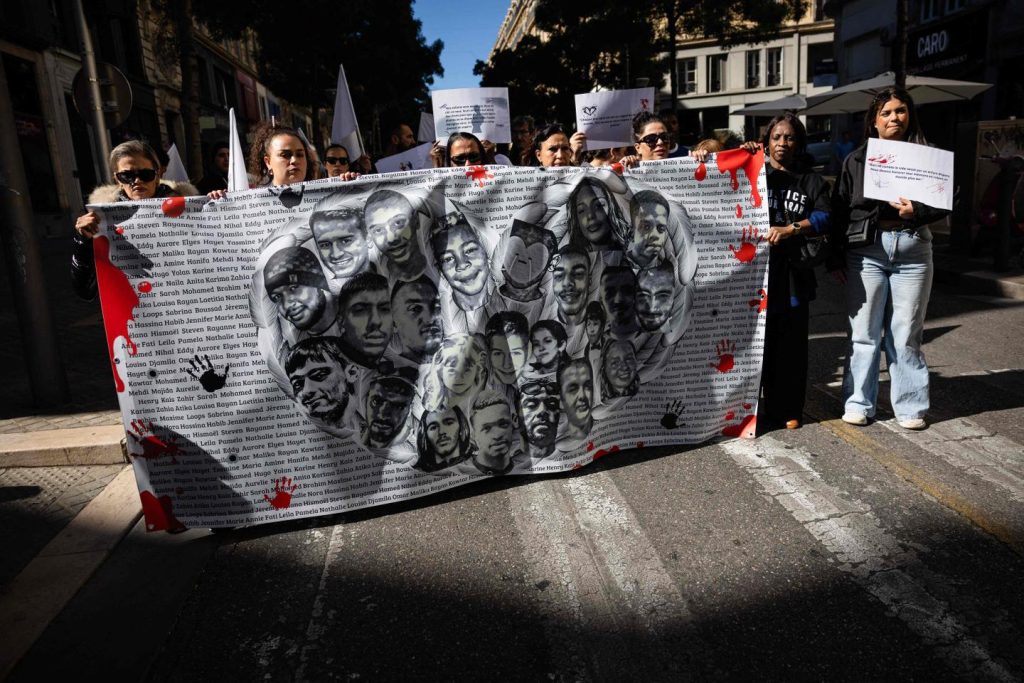In Marseille on September 14, 2024, families affected by drug-related violence marched to demand justice for the victims of narcotrafficking. The Prime Minister, Michel Barnier, announced plans for a new law to combat organized crime. He received input from Bruno Retailleau and Didier Migaud, and emphasized the need for a united effort against criminal organizations that threaten national interests. The ministers of the interior and justice set aside their differences to present a joint plan against the “scourge” of narcotrafficking in France, declaring it a national priority.
Political leaders have long promised to crack down on drug trafficking, organized crime, and the underground economy that are harming communities in France. Despite tough rhetoric from past officials like Nicolas Sarkozy and Manuel Valls, drug consumption and related deaths have continued to rise. Recent tragic incidents, such as violent shootings in Grenoble, Rennes, and Poitiers, have finally prompted a shift in public opinion. The president of the Senate’s commission on the impact of narcotrafficking in France, Jérôme Durain, notes a growing awareness of the reality of drug-related crime and violence, with the issue no longer being ignored.
Local officials, including leftist mayors, are also recognizing the severity of the situation as violence linked to drug trafficking escalates. The mayor of Rennes, Nathalie Appéré, spoke out against the intolerable violence caused by drug trafficking after a 5-year-old child was gravely injured in a shooting. Efforts to “depoliticize” the issue are underway as more leaders from different political backgrounds are acknowledging the urgent need for action. The increasing violence and impact on innocent civilians have pushed the issue to the forefront of national debates and policy discussions.
The proposed law on narcotrafficking will be a focal point for parliamentary discussions in January 2025, following input from the Senate. The government is aiming for a comprehensive and aggressive approach to combatting organized crime, emphasizing the need for a concerted effort from all levels of society. The seriousness of the situation has led to a shift in attitudes, with a growing consensus on the need for decisive action against drug trafficking and its associated violence. The tragic events that have unfolded in recent months have highlighted the urgency of addressing this issue effectively.
While past efforts to combat drug trafficking have been met with mixed success, the current government’s push for a new law signals a renewed commitment to taking on organized crime. The mounting public pressure and the increasing number of casualties resulting from drug-related violence have galvanized politicians from different parties to unite in the fight against the criminal networks responsible. The proposed measures aim to disrupt the activities of drug traffickers and dismantle their operations, with a focus on preventing further tragedies and protecting communities from the devastating impact of narcotics on society.
The challenge ahead lies in implementing effective strategies to tackle narcotrafficking, prevent drug-related violence, and address the root causes of the problem. The proposed law reflects a recognition of the urgent need for coordinated action at the national level to confront the growing threat posed by organized crime. By prioritizing the fight against drug trafficking and its harmful consequences, political leaders are signaling a commitment to safeguarding the well-being and security of citizens. The upcoming parliamentary discussions will test the government’s resolve to combat narcotrafficking and deliver on its promises to protect the public from the dangers of the illicit drug trade.


